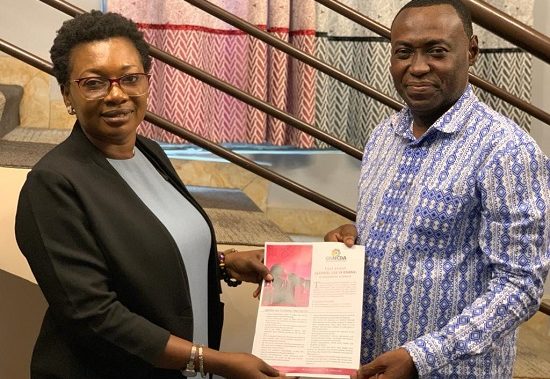ANAQ Foundation woos MPS over Alcohol Regulation Bill

ANAQ Foundation has engaged some Members of Parliament in the Ashanti Region to support the passage of the Alcohol Regulation Bill when it is brought before Parliament.
In partnership with the Ghana Non-Communicable Diseases (GhNCDA), the step was also to ensure that the MPs add their voice to the current national discourse on the alcohol regulations.
The Foundation has so far engaged seven Members of Parliament (MPs) in the Ashanti Region, including Hon. Akwasi Konadu, Member of Parliament for Manhyia North and Hon. Kofi Amankwa-Manu, Member of Parliament for Atwima Kwanwoma.
Others are Hon. Emmanuel Agyei Anhwere, Member of Parliament for Atwima Nwabiagya South and Hon. Johnson Kwaku Aidoo, Member of Parliament for Ahafo Ano South West.
During the meeting with the Ahafo Ano South West Legislator, he assured that they will contribute on the policy when it is brought before parliament to reduce the risk of alcohol among the population.
He said “it’s about time to intensify the advocacy on alcohol and work tirelessly to ensure the adoption of the national Alcohol Regulations”.
“Not only alcohol, issues on tramadol must also be carefully looked at again” he added.
The Members of Parliament were marveled by the contribution and collaborative effort of the Ghana Non-Communicable Disease Alliance (GhNCDA) and other organizations comprising, NGOs, CSOs, PLWNCDs among others to produce and present the policy and fact sheet on alcohol consumption in Ghana.
The President of ANAQ Foundation, Mrs. Ama Nyarko Attefuah Quainoo expressed her gratitude on behalf of GhNCDA to all the MPs engaged and assured them of ANAQ Foundation’s readiness to ensure the government passes an alcohol control law or any other legislative instrument that gives legal backing to alcohol control in Ghana.
Mrs. Ama Nyarko Attefuah Quainoo stated that several health disorders had been ascribed to the harmful use of alcohol which has led to some productivity losses, a worrying situation that needs a national attention.
“Some of the negative health effects of abusive alcohol consumption include mental health problems, liver and heart ailments, and diabetes,” she added.
She posited that the trend of non-communicable diseases, many of which had the commodity as the risk factor, was also on the increase.
According to ANAQ Foundation in a survey conducted in Ghana at the beginning of 2022, alcohol consumption per capita reached 2.7 litres in 2016 with 9.4% of Ghanaian adults engage in binge alcohol consumption.
The binge alcohol consumption poses a great risk to the overall health of Ghana’s population and is a burden to the entire economy, according to the survey.
CLICK HERE TO DOWNLOAD PRESS RADIO MOBILE APP
“Alcohol use disorders in Ghana were 4.1% in 2016, above the World Health Organisation (WHO) Africa region average of 3.7%. Similarly, in 2016, Ghana’s alcohol dependence (1.4%) exceeded the WHO Africa region figure by 0.1%,” the survey revealed.
Source: Ghana/otecfmghana.com






